Iran issues first death sentence over Mahsa Amini protests
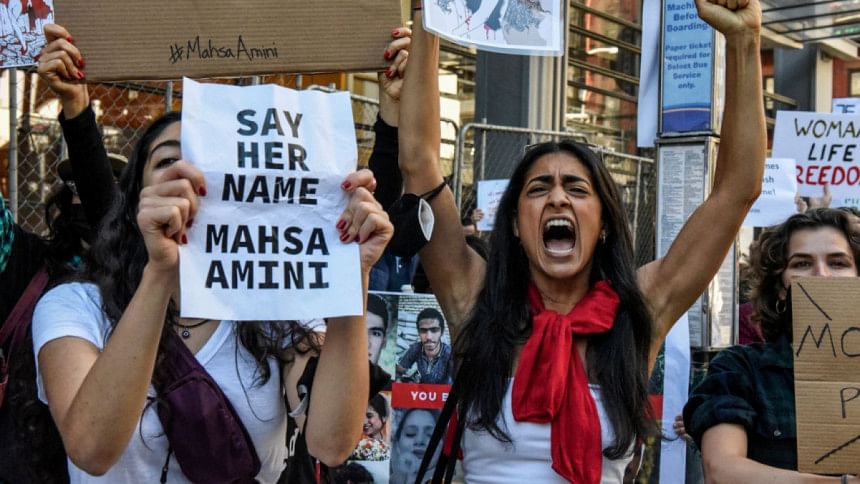
Iran on Sunday issued its first death sentence over the protests that have shaken the country's clerical leadership, the judiciary said, with a rights group warning other convicts risked being "hastily" executed.
The almost two months of protests sparked by the death of Mahsa Amini, who had been arrested by the morality police, have prompted authorities to unleash a crackdown that has seen thousands detained.
Some have been charged with offences that could see them face the death penalty in a country that Amnesty International says executes more people annually than any nation other than China.
The unidentified accused was sentenced in a Tehran court to death for the crimes of "setting fire to a government building, disturbing public order, assembly and conspiracy to commit a crime against national security," as well as for being "an enemy of God and corruption on earth", the judiciary website Mizan Online reported.
Another court in Tehran sentenced five others to prison terms of between five to 10 years for "gathering and conspiring to commit crimes against national security and disturbing public order", Mizan said.
Earlier this month, 272 of Iran's 290 lawmakers demanded that the judiciary apply the death penalty, in "an eye for an eye" retributive justice against those who "have harmed people's lives and property with bladed weapons and firearms".
'CARRIED OUT HASTILY'
Mahmood Amiry-Moghaddam, the director of Norway-based NGO Iran Human Rights, said at least 20 people are now according to official information facing charges punishable with death.
"We are very concerned that the death sentences may be carried out hastily," he told AFP.
"The international community must send a strong warning to the Iranian authorities that implementation of the death sentence for protesters is not acceptable and will have heavy consequences," he added.
On Sunday, Mizan and other local media also said the judiciary has charged more than 750 people in three provinces for involvement in "recent riots".
More than 2,000 people had already been charged, nearly half of them in the capital Tehran, since the demonstrations began, according to judiciary figures.
The crackdown has also seen the arrest of dozens of activists, journalists and lawyers whose continued detention has caused an outcry abroad.
Iranian authorities on Sunday transferred to hospital prominent dissident Hossein Ronaghi who was arrested in September and has been on hunger strike for more than 50 days, his brother said.
Ronaghi was taken to Evin prison after his arrest on September 24. His family says he risks dying due to a kidney condition, and that both his legs have been broken in prison.
On Sunday, his brother said Ronaghi was moved to the Dey general hospital in Tehran.
"Hossein was taken to one of the departments of the Dey hospital," Hassan Ronaghi wrote Sunday, saying his parents had been prevented from seeing their son. "His life is in danger."
'RECOGNISED THE REVOLUTION'
Also on Sunday Iran criticised a Friday meeting between French President Emmanuel Macron and dissident opponents of the Islamic republic, calling his comments after the encounter "regrettable and shameful".
Macron met with four prominent Iranian dissidents, all of them women, and then spoke of his "respect and admiration in the context of the revolution they are leading".
Masih Alinejad, the prominent US-based activist who has campaigned against the compulsory headscarf and was at the meeting, commented to AFP: "President Macron recognised the Iranian revolution and that's a truly historical decision."
According to IHR, at least 326 people have been killed by the security forces in a crackdown on the nationwide protests.
This figure includes at least 123 people killed in the province of Sistan-Baluchistan, on Iran's southeastern border with Pakistan.
Most of those were killed on September 30 when security forces opened fire on protesters after Friday prayers in Zahedan, the capital of Sistan-Baluchistan -- a massacre activists have dubbed "Bloody Friday".
Those protests were triggered by the alleged rape in custody of a 15-year-old girl by a police commander in the province's port city of Chabahar.
A delegation from Iran's supreme leader Ayatollah Ali Khamenei expressed sadness and promised solutions in a weekend visit to Zahedan, official media said.
The city's police chief and the head of a police station had already been dismissed, local officials had already announced.

 For all latest news, follow The Daily Star's Google News channel.
For all latest news, follow The Daily Star's Google News channel. 

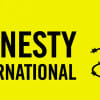

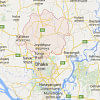
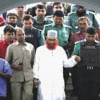


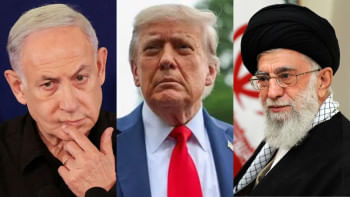
Comments